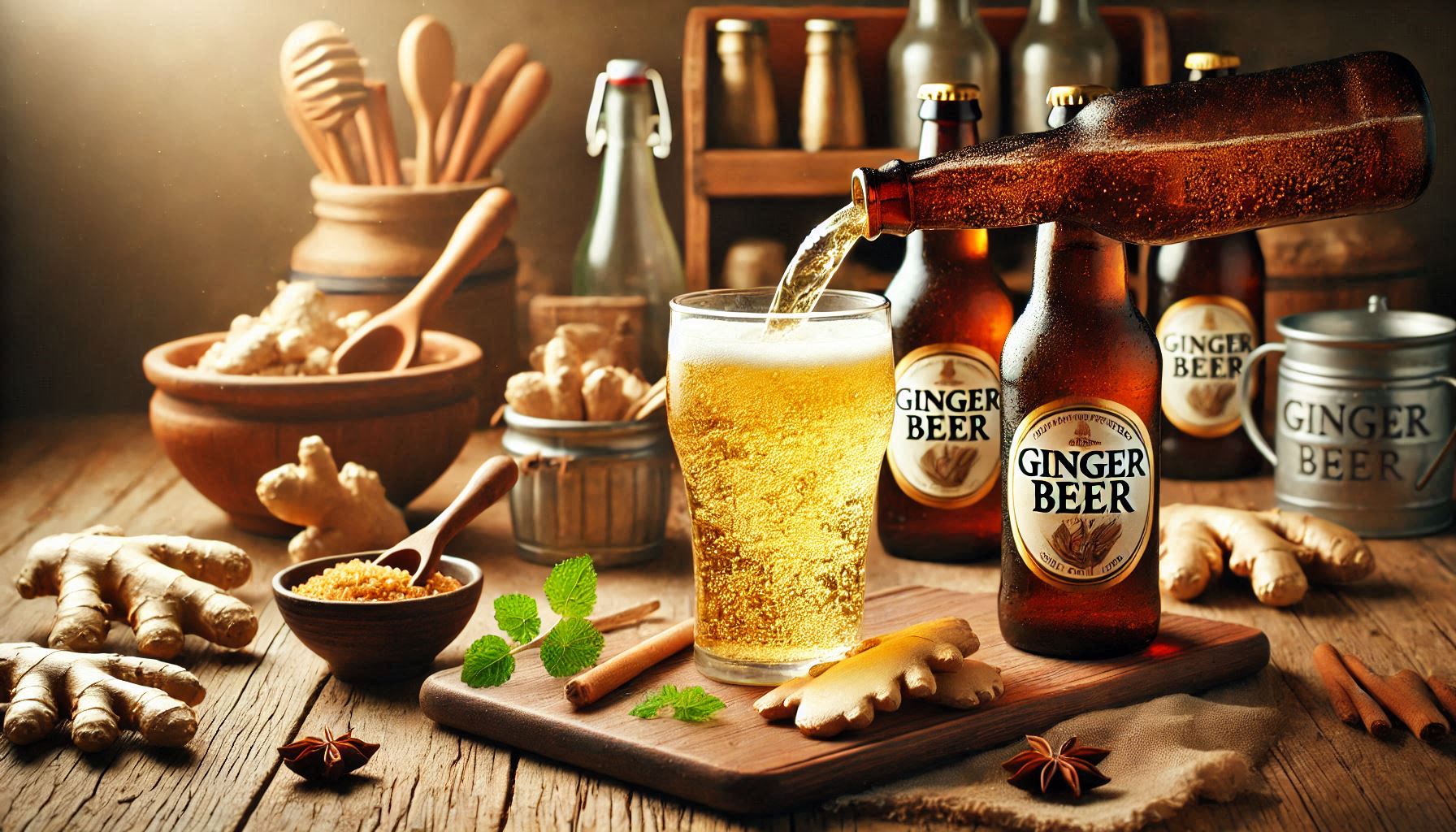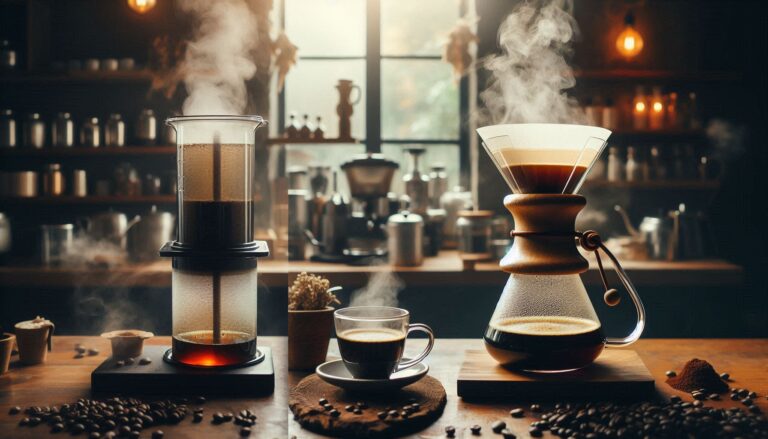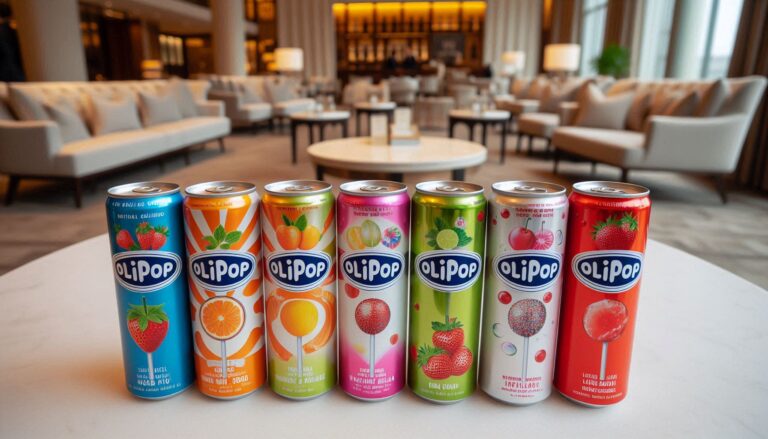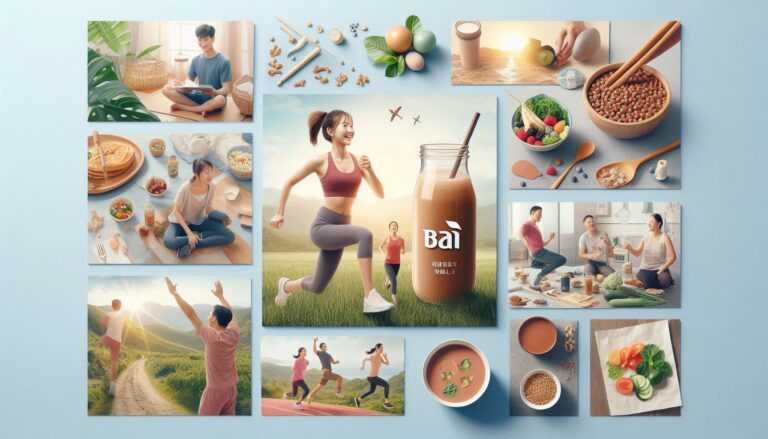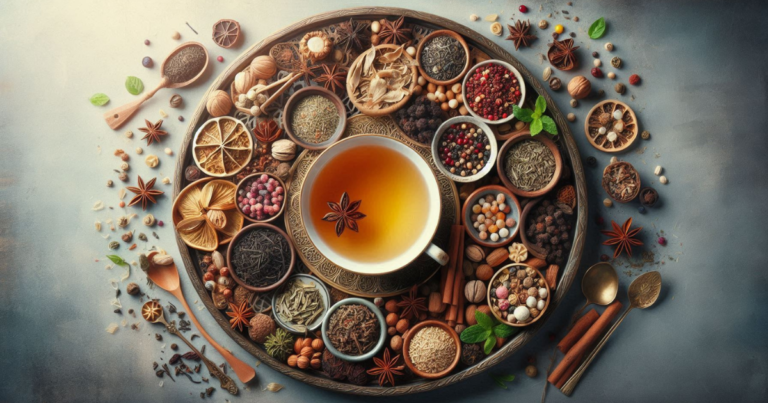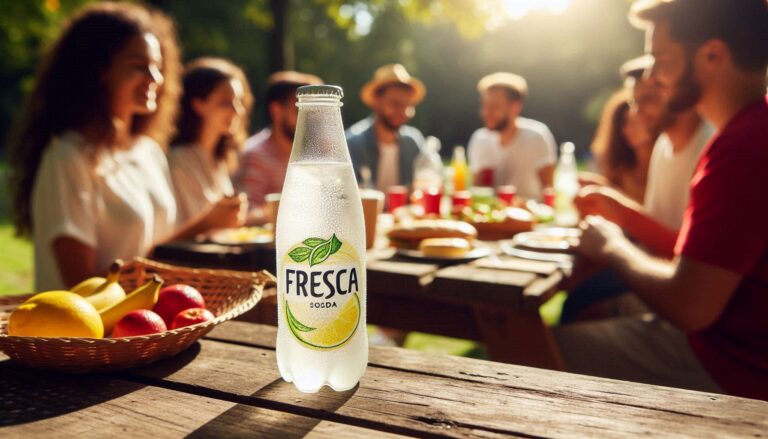Does Ginger Beer Have Caffeine? Everything You Need to Know
Ginger beer is a popular carbonated drink known for its bold, spicy flavor and refreshing qualities. With its roots in traditional herbal beverages, it has evolved over time into a beloved soft drink that’s enjoyed worldwide. Whether you’re sipping it on its own or using it as a mixer for cocktails, ginger beer brings a unique taste to the table. But there’s one question that many people ask: Does ginger beer have caffeine?
You might be wondering whether this fizzy, flavorful drink is like a traditional energy booster, such as coffee or sodas that contain caffeine. With so many options on the market today, it’s important to understand whether ginger beer contains caffeine, especially if you’re trying to limit your intake. Let’s explore the truth about caffeine in ginger beer, its ingredients, and the various types available.
Why It’s Important to Know Caffeine Content

Before diving into whether ginger beer has caffeine, let’s first discuss why it’s important to be aware of the caffeine content in your drinks. Many people turn to caffeine for an energy boost, but it’s essential to know the amount you’re consuming, especially if you’re sensitive to it or trying to avoid it.
Digestive Benefits of Ginger
One of the main reasons people enjoy ginger beer is its digestive properties. Ginger has long been used as a natural remedy for nausea and indigestion. It’s commonly recommended for its calming effects on the stomach, making it an excellent choice for those who experience digestive discomfort. Since ginger beer’s primary ingredient is ginger, it’s a great alternative for those seeking digestive relief without relying on caffeine.
Energy Boosting Myths
Ginger beer is often misunderstood as an energy drink, but it doesn’t work the same way as coffee, tea, or energy drinks that rely on caffeine for their stimulating effects. The energy-boosting properties of ginger beer are generally attributed to its ginger content and natural sugar rather than caffeine. Many consumers mistakenly believe that ginger beer has caffeine due to its effervescence and bold flavor, but the truth is, traditional ginger beer is naturally caffeine-free.
Caffeine Sensitivity
If you’re sensitive to caffeine, it’s crucial to understand which beverages contain it and which don’t. Caffeine can cause side effects like jitteriness, increased heart rate, and disrupted sleep patterns. Therefore, knowing whether your favorite beverages, like ginger beer, contain caffeine is vital for managing your health and wellness.
Does Ginger Beer Have Caffeine?
So, does ginger beer contain caffeine? The answer is generally no—most traditional ginger beers are caffeine-free. The main ingredients in ginger beer are ginger root, sugar, carbonated water, and yeast. These ingredients do not naturally contain caffeine. In fact, ginger beer is often chosen as a refreshing, caffeine-free alternative to sodas or energy drinks.
However, there are modern variations of ginger beer that may contain caffeine, so it’s important to check the label or ingredient list. As the market for energy drinks continues to grow, some brands have started adding caffeine to their ginger beer for an extra boost. But, these caffeinated versions are the exception, not the rule.
Caffeine in Ginger Beer: What to Look For
If you’re concerned about caffeine in ginger beer, it’s always best to read the product label. Many newer ginger beer brands, especially those marketed as energy drinks, may contain ingredients like guarana, green tea extract, yerba mate, or kola nut extract, all of which contain caffeine. If you see any of these ingredients listed, it’s a sign that the ginger beer might contain caffeine.
Modern Variations and Caffeine Additions
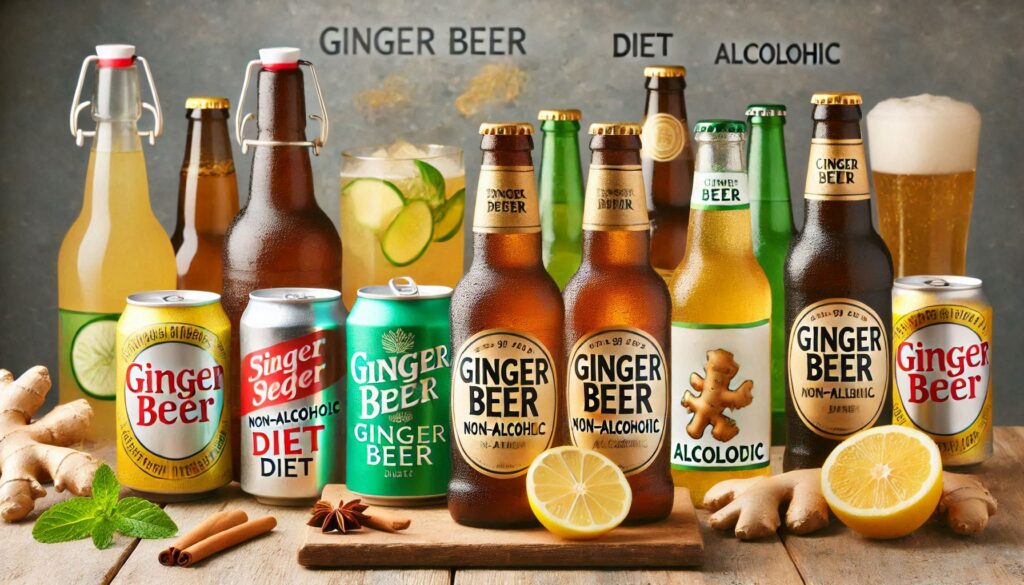
In recent years, the popularity of craft sodas and energy drinks has led to many variations of ginger beer, some of which include caffeine for added energy. Let’s break down some of the different types of ginger beer you might find:
Craft Ginger Beer
Craft ginger beers have become a growing trend in the soft drink industry. These beverages often contain unique flavors and more artisanal ingredients than traditional ginger beer. Some craft ginger beers may include caffeine as an added ingredient to provide a natural energy boost. These drinks often appeal to those who want a fizzy, flavorful drink that’s not only refreshing but also energizing.
Flavored Ginger Beers
Flavored ginger beers, such as lime, raspberry, or lemon, can also include caffeine. Manufacturers may add caffeine to enhance the beverage’s energy-boosting effects, making it a more appealing choice for people looking for an energizing soft drink. However, just like with craft ginger beer, these flavored versions may not always be caffeine-free.
Diet or Low-Sugar Ginger Beer
Diet and low-sugar versions of ginger beer typically aim to offer the same great taste without the added calories. While these drinks are generally caffeine-free, some companies may add caffeine for an additional burst of energy. Always be sure to read the ingredients if you’re trying to avoid caffeine.
Alcoholic Ginger Beer
If you enjoy a Moscow mule or other cocktails, you might be familiar with alcoholic ginger beer. These versions are typically made with fermented ginger and alcohol, and they do not contain caffeine. However, some alcoholic ginger beer brands may add caffeine to their products, especially if they’re marketed as a fun, energy-boosting drink.
Ginger Beer Variants and Their Caffeine Content
When it comes to ginger beer, not all variants are created equal. Here are some common types of ginger beer and their typical caffeine content:
Extra Spicy Ginger Beer
Extra spicy ginger beer is known for its strong, zesty flavor. This variety typically contains more ginger, which enhances its digestive benefits. Extra spicy ginger beers are generally caffeine-free, as they focus on providing a bold, spicy taste rather than an energy boost.
Light or Diet Ginger Beer
Diet or light ginger beers are usually crafted with fewer calories and sugar. These options are ideal for those watching their sugar intake but still want to enjoy the refreshing taste of ginger beer. Most light ginger beers are caffeine-free, but as with other modern variations, it’s essential to double-check the label for any added caffeine.
Craft Ginger Beer
Craft ginger beers have been gaining popularity for their unique, handcrafted qualities. While most are caffeine-free, some may contain caffeine, particularly if they’re marketed as energy drinks. Always verify the ingredients to make sure they align with your dietary preferences.
Alcoholic Ginger Beer
As mentioned earlier, alcoholic ginger beer is often enjoyed in cocktails. These drinks are not generally caffeinated unless caffeine is added intentionally by the manufacturer. Alcoholic ginger beer is primarily consumed for its taste and alcohol content rather than its energizing properties.
Organic or Natural Ginger Beer
Organic and natural ginger beers tend to avoid artificial additives, preservatives, and sweeteners. These drinks are often free from caffeine, as they focus on using pure ingredients to create a wholesome, flavorful beverage. If you’re looking for a caffeine-free ginger beer, opting for organic versions is usually a safe bet.
Ingredients in Ginger Beer
Understanding what goes into ginger beer can help you determine whether it contains caffeine. Here are the key ingredients you’ll find in most ginger beers:
- Ginger Root: The star ingredient, ginger provides a spicy, zesty flavor and boasts digestive benefits. Ginger is naturally caffeine-free, making ginger beer a great option for those avoiding stimulants.
- Sugar: Added for sweetness, sugar is a common ingredient in ginger beer. The sugar content can vary depending on the brand and whether the beverage is marketed as a low-calorie or diet option.
- Carbonated Water: This gives ginger beer its signature fizz. The carbonation is naturally caffeine-free.
- Yeast: Yeast is used in the fermentation process for traditional ginger beer, contributing to its unique flavor and slightly tangy taste.
- Flavorings: Some ginger beers include additional flavorings like lemon, lime, or herbs, but these are usually free from caffeine.
Modern Additives
As the ginger beer market continues to evolve, some companies are introducing new ingredients to enhance the drink’s flavor and appeal. For example, caffeine might be added in the form of guarana, yerba mate, or green tea extract. Always check the ingredient list if you’re looking to avoid caffeine.
Nutritional Information of Ginger Beer
When choosing a beverage, it’s essential to understand its nutritional profile, especially if you’re conscious about calories, sugar content, or any specific dietary needs. Ginger beer is often enjoyed as a refreshing, flavorful drink, but knowing its nutritional content can help you make informed decisions about your intake.
Typical Ginger Beer Nutritional Breakdown
The exact nutritional content of ginger beer can vary from brand to brand, but here’s a general overview of what you can expect:
- Calories: Ginger beer tends to be relatively low in calories, especially if it’s made with natural sweeteners or if it’s a diet version. A standard 12 oz can of ginger beer typically contains between 100 and 150 calories.
- Sugar: One of the key ingredients in ginger beer is sugar, which gives it its sweet and refreshing taste. A regular serving of ginger beer can have anywhere from 20 to 30 grams of sugar, depending on the brand. However, there are diet and low-sugar versions available, which have significantly lower sugar content.
- Carbs: In addition to sugar, ginger beer contains carbohydrates, usually around 20-35 grams per serving. This is mainly from the sugar content, making it a drink that provides energy, though it’s not something you’d want to consume in excess if you’re managing your carb intake.
- Other Nutrients: Most ginger beers are free from fats and proteins. They generally contain minimal amounts of vitamins and minerals, though some may include small amounts of potassium or vitamin C due to the addition of fruit juices like lemon or lime.
Caffeine Content: A Quick Check
When it comes to caffeine content, most traditional ginger beers are caffeine-free. However, if you are specifically seeking a caffeine-free beverage, it’s always a good idea to check the product’s nutritional label. Caffeine is typically listed under the ingredients or caffeine content section, so be sure to keep an eye out for that. Caffeinated versions of ginger beer will often highlight it as a selling point on the packaging.
Ginger Beer vs. Other Beverages
Let’s briefly compare ginger beer with other popular drinks in terms of caffeine content:
- Coffee: A standard 8 oz cup of coffee can contain 80-100 mg of caffeine, far higher than what you would typically find in ginger beer.
- Soda: Regular sodas like cola or lemon-lime soda may contain caffeine (about 30-40 mg per 12 oz serving), while most ginger beers are caffeine-free.
- Energy Drinks: Popular energy drinks contain high levels of caffeine—typically 80-200 mg per serving—making them quite different from ginger beer in terms of their energizing effect.
For most people, ginger beer is a caffeine-free, healthier alternative to sodas and energy drinks, especially for those trying to reduce their caffeine intake.
Alternatives to Ginger Beer and Their Caffeine Content
If you’re looking for something similar to ginger beer, whether for its spicy flavor, refreshing effervescence, or lack of caffeine, there are plenty of alternatives available. Here are a few options to consider:
Caffeine-Free Alternatives
- Sparkling Water: If you love the effervescence of ginger beer but want a caffeine-free option, sparkling water is a great choice. It comes in a wide variety of flavors like lime, lemon, berry, and cucumber, providing the same refreshing fizzy sensation without any caffeine or sugar. Brands like LaCroix or Perrier offer a range of sparkling waters that are completely caffeine-free.
- Herbal Teas: Herbal teas such as peppermint, chamomile, and rooibos are caffeine-free and can provide a soothing, flavorful alternative to ginger beer. These teas can also be served cold for a refreshing summer drink, and you can add some ginger to the mix for an extra kick of spice.
- Fruit-Infused Waters: If you enjoy the sweetness of ginger beer but want something lighter, fruit-infused waters are a great option. Simply add fresh fruit like berries, citrus, or herbs (mint, basil) to water for a flavorful, refreshing drink without any added sugar or caffeine.
- Kombucha: For a slightly tangier, probiotic-packed alternative, kombucha is another non-caffeinated drink that can appeal to fans of fizzy beverages. While kombucha typically has a distinct fermented taste, it offers many of the same health benefits that ginger beer does, particularly for digestion.
Caffeine-Free Sodas
If you’re not quite ready to give up soda altogether but want to avoid caffeine, there are several caffeine-free sodas on the market. Brands like Root Beer, Lemonade, and Orange Soda offer that satisfying fizz without the caffeine. While these sodas may contain sugar or artificial sweeteners, they can be an excellent substitute when you’re craving something carbonated but want to avoid caffeine.
Energy Drinks with Ginger
For those who enjoy the spiciness of ginger beer but still want the energizing effects of caffeine, there are energy drinks that blend ginger with caffeine. These drinks typically contain ingredients like guarana, ginseng, or caffeine in addition to ginger to provide that extra kick. Popular brands in this category include Monster Energy or Red Bull that might use ginger extract as part of their flavor profile. However, keep in mind that these drinks pack a significant caffeine punch.
Health Benefits of Ginger Beer (Without Caffeine)
When enjoyed as part of a balanced diet, ginger beer (especially the traditional, caffeine-free version) offers several health benefits. Here are some of the advantages of drinking ginger beer that make it stand out from other beverages:
Aid in Digestion
Ginger has long been celebrated for its digestive properties. Drinking ginger beer, particularly after meals, can help soothe the stomach and alleviate symptoms of indigestion, nausea, or bloating. Ginger has been used in traditional medicine for centuries to treat these issues, and it’s a natural way to support healthy digestion.
Anti-Inflammatory Properties
Ginger contains compounds known as gingerols that have strong anti-inflammatory effects. Consuming ginger beer made with fresh ginger may help reduce inflammation in the body, which can be particularly beneficial for people dealing with conditions like arthritis or muscle soreness.
Relieves Nausea and Motion Sickness
For individuals who suffer from motion sickness, ginger is a well-known natural remedy. Drinking ginger beer can help alleviate nausea caused by travel, pregnancy, or illness. The soothing properties of ginger, combined with the carbonation, make ginger beer a perfect choice for those needing relief from these symptoms.
Boosts Immune Function
Ginger is rich in antioxidants, which can help support the immune system. Regularly consuming ginger beer (without excessive sugar) may help improve overall health and prevent colds or infections.
Conclusion: Enjoy Ginger Beer Without the Caffeine
To wrap up, the majority of ginger beers are caffeine-free, making them an excellent choice for people looking to avoid caffeine but still enjoy a refreshing, flavorful beverage. While some newer variations of ginger beer may contain caffeine due to added ingredients, the classic ginger beer remains a beloved, caffeine-free drink that offers digestive benefits and a spicy, enjoyable taste.
Whether you’re sipping it on a hot day or using it as a mixer for cocktails, ginger beer continues to be a versatile drink with many health benefits. Always check the label to confirm whether caffeine has been added, and choose from the many available alternatives if you prefer to avoid it.
Ginger beer is the perfect combination of spice, sweetness, and effervescence, all without the worry of caffeine-induced jitters. So go ahead and enjoy your ginger beer, guilt-free!
